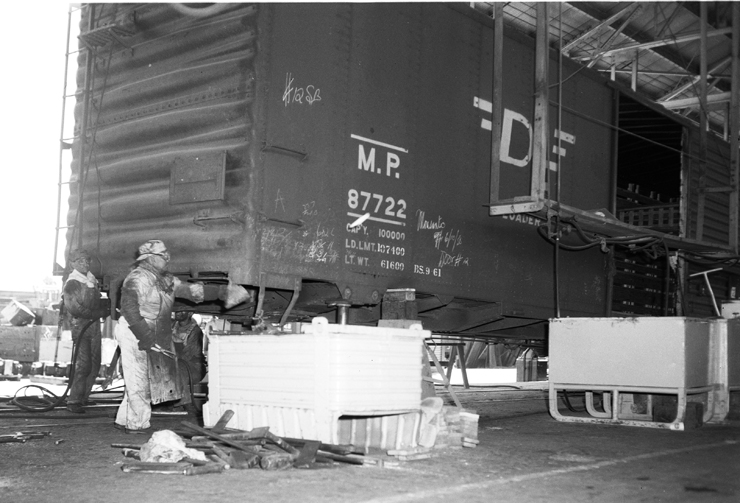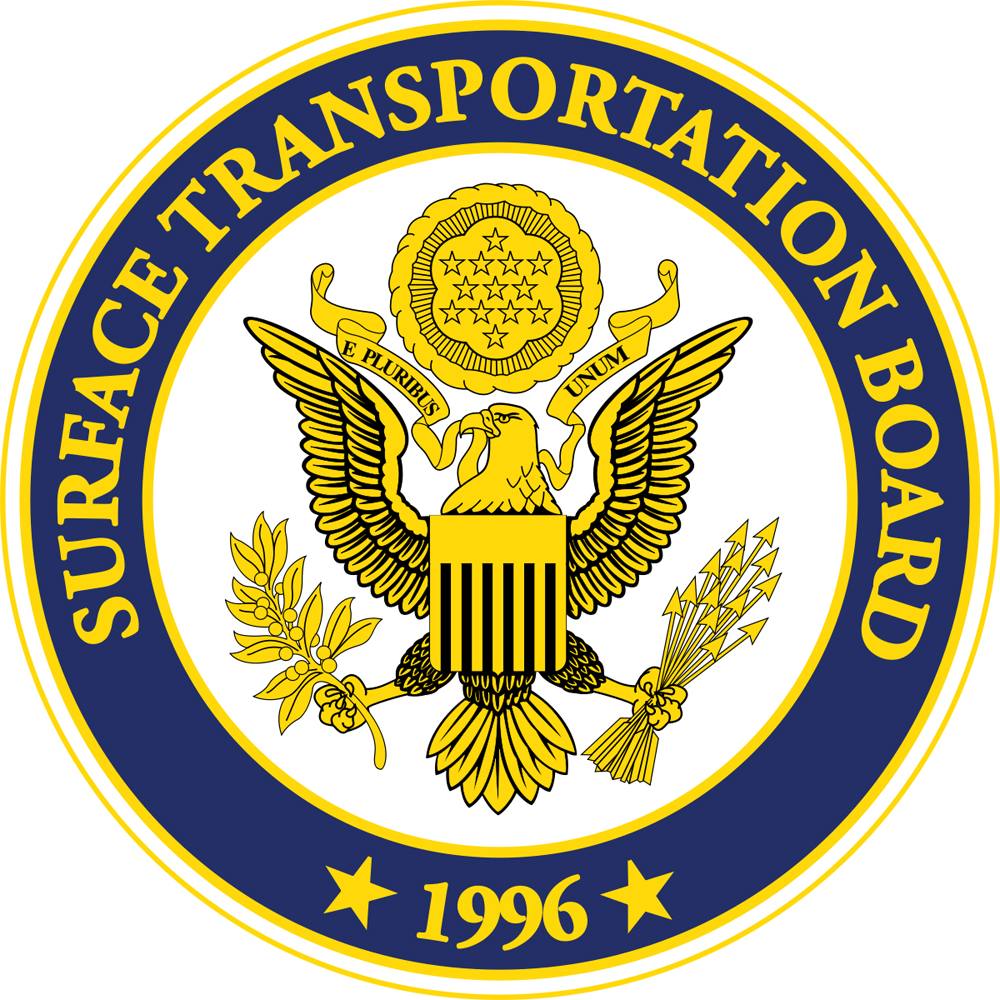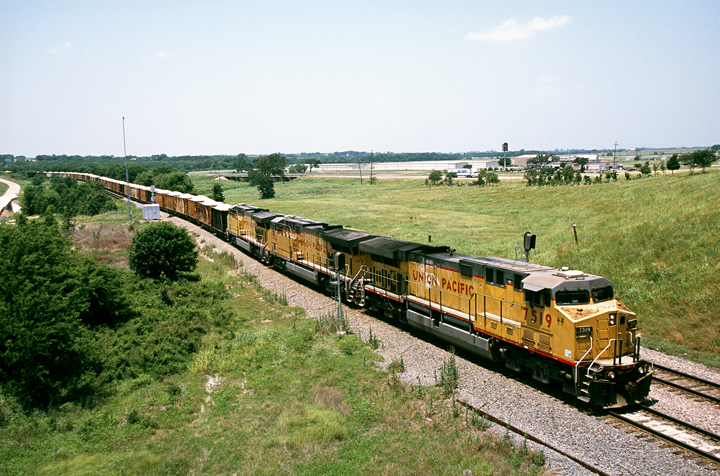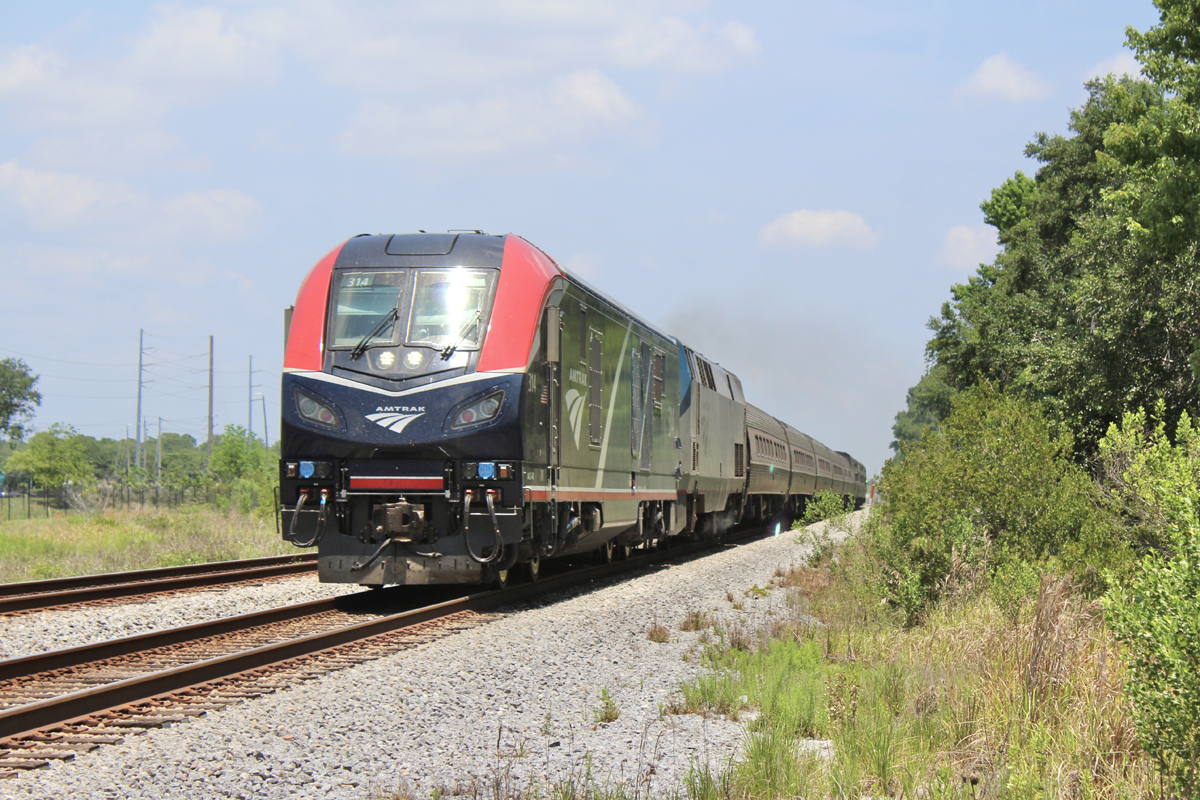PALESTINE, Texas — Two state legislators have issued a statement calling on Union Pacific to drop its effort to overturn an almost 150-year-old law guaranteeing railroad jobs in Palestine.
The railroad filed suit in late November to void the agreement dating to 1872 which requires 0.52 percent of its workforce to be based in Palestine, site of a car shop. [See “UP sues to end employment provision in Texas town,” Trains News Wire, Dec. 2, 2019.]
The statement by state Rep. Cody Harris (R-Corsicana) and state Sen. Robert Nichols (R-District 3) urges Union Pacific “to uphold the current contract and abandon its attempt to break this long-standing agreement. Breaking the agreement or convincing a court to nullify the contract would have a devastating impact on our local economy and the 60 families who’ve devoted their lives and their careers to Union Pacific.”
The Palestine Herald-Press quotes Palestine Mayor Steve Presley as saying this is not the first time the agreement has been challenged in court. “UP attempted something like this in the 1970s,” Presley told the paper. “We beat them then. Our job is to figure out a way to beat them now.”
Since that time, however, the Interstate Commerce Commission has been replaced as the rail regulating body by the Surface Transportation Board, and unnamed legal experts told the paper the city will likely lose its legal battle with the railroad.















Railroads are forever trying to get rid of property taxes and are selling off those properties. In addition they are farming out car repair and anything else they can to companies that have cheaper labor. Union employees salaries are mostly higher. Just look at how many shops and car repair places MP had prior to the merger and see if any of them are left. Very few.
It is very difficult for small towns to lose such employers. Its no wonder they fight hard. Lastly in almost any dealings the carrier is heartless.
I think those two state senators are just cry babies. Why should any business be required to maintain employment of a set number of employees if there is no business need for those positions? Should the railroad have been required to keep pipe fitters and other steam era employees on the payroll indefinitely? Like every company that closes one location while opening or maintaining others, the railroad should only be responsible for offering the affected employees to take jobs elsewhere or accept retirement buyouts.
I know a mayor who, feed up w/UP and it’s disdain for his city’s needs, got a call from a UP official in our capital city. He held up the conversation that followed by saying. “YOU PEOPLE at UP think you are GOD, You are NOT. The only God I know I worship on Sunday”. Funny but ever since that day he has NEVER had another call from UP officials. endmrw1210190920
A week ago I thought of a similar matter. After a 1912 rear-end collision on the Lackawanna which killed a number of Chinese who were being deported back to China the City of Elmira NY wrung an agreement that the DL&W would care for the immigrants’ graves. A man I met told me back in 1985 he had seen a ConRail crew pull up to the cemetery in a CR pick-up truck and service those graves. Anyone know if NS as the latest successor to the DL&W is still doing that?
The mayor’s history is somewhat foggy. UP didn’t purchase MP until 1982, and UP fully merged MP in 1997. Thus in the 1970s, the UP wouldn’t have been involved; it still would have been the MP. Of course, to the general public, a railroad is a railroad is a railroad, and its name is unimportant. Also, to expect accuracy from most politicians is going too far. On the other hand, maybe the mayor’s stated decade is too early; perhaps the UP did try this in the 1980s or 1990s.
Also, the article is unclear what workforce the 0.52% refers to. The MP workforce in 1872? The MP workforce at any time during its corporate existence? The former MP trackage still operated by the UP today? The total UP workforce? And what about the shortlines that now operate some portions of the former MP? Should they contribute their “fair share” of employees? Unless the original law/contract/agreement is very specific, it seems like this could be a very interesting legal battle to watch. Get the popcorn ready.
Maybe this city could sweeten the deal a bit. Best if there is a win for both sides.
Once upon a time, a railroad worker by just his/her occupation, was a respected member of an industry and the community. It was an important, steady job moving the people and freight of a great nation. Time and progress marches on, and leaves those special places in the hearts of us railfans – Paris, TN, Water Valley, MS, Tamms, IL, etc. – hollow.
The general rule in contract law is that a contract with no stated term can be cancelled by any party on reasonable notice. That, of course, can be altered by state statute.
If the railroad industry was lead by those who believed in growth this would be a very easy thing to honor.
Palestine mayor Presley should tell UP that they are nothing but a bunch of hound dogs that are crying all the time.
How long was the agreement for? If there was no stated length of time, then it is unreasonable to expect it would last in perpetuity.
There has been a very major change in Federal law since 1977 which may impact this case. That change was the enactment of the ICC Termination Act (ICCTA) in 1996, which significantly reduced non-safety Federal railroad regulation and transferred the surviving regulation to the Surface Transportation Board.
But ICCTA did more than that. It severely limited the ability of states to regulate railroad “transportation” (outside of rail safety regulation permitted by Federal rail safety laws). “Transportation” is specifically defined in the statue, and statutory definitions are important in understanding what laws do. In this case, ICCTA broadly defines “transportation” to include not only the actual movement of goods and passengers, but “property, facilities, instrumentalities or equipment of any kind.related to that movement”. See 49 USC15102(5)(defining “transportation”) and 49 USC 10501(b) preempting state regulation.of “transportation”. A railroad shop used to maintain rolling stock used for “transportation” would appear to easily fit within the ICCTA’s definition of “transportation. maintain equipment.
I don’t know a whole lot about the facts of the Palestine case, but I know a lot about how broadly ICCTA preemption has been applied over the years. It’s been held to cover things you would never imagine, like state/local blocked crossing restrictions (something neither STB or ICC ever affirmatively regulated). A key issue in the Palestine case is likely to be whether the requirements at issue are actually a form of “regulation” or something else. The fact that the employment requirements at issue have apparently been imposed by state statute certainly looks, smells and tastes like a form of regulation, but there could be facts I’m not aware of that cut the other way. In any event, the 1977 case is not likely to be very relevant because of teh significant changes in Federal trasportation law that have occurred since then .
See link for details of previous case — 1977: https://casetext.com/case/city-of-palestine-texas-v-united-states. First, the agreement in question dates to 1954, at least the third modification of the 1872 agreement of a far removed predecessor of Missouri Pacific Railroad. Second, the 1977 case overturned an ICC decision that set aside the 1914 modification of the original agreement. (The court ruled the ICC exceeded its authority in approving Missouri Pacific’s request.) Third, previous court decisions concerning the 1872 agreement as modified were tied to Texas statute, which makes appeals to similar situations in other states possibly irrelevant. Fourth, the full text of the 1954 version of the agreement apparently provides for a sliding scale of the percent of employees required to be located in Palestine in the case of merger. That is, the number of rail cars owned by UP, etc. is irrelevant to the calculations. (The 1872 agreement required headquarters, the roundhouse, and other facilities by located in Palestine, which requirement was eventually was whittled down to a percentage of employees.) Finally, and as point of historical reference, Palestine asked for guarantees in return for the city and county providing to the railroad bonds necessary to complete the financing and construction of the railroad.
Lotsa luck with that request.
Several years ago there was a similar lawsuit by Burlington Iowa against the BNSF because the railroad wanted to close its shops there. The CB&Q had gotten some right of way or bonds or something in return for building its shops there about 1860. The city lost.
Another factor is the fraction of cars owned or leased by Class 1s is quite a bit smaller now. Most are privately owned or leased and maintained in contractor facilities found across North America (including elsewhere in Texas) and not in Class 1 car ships n